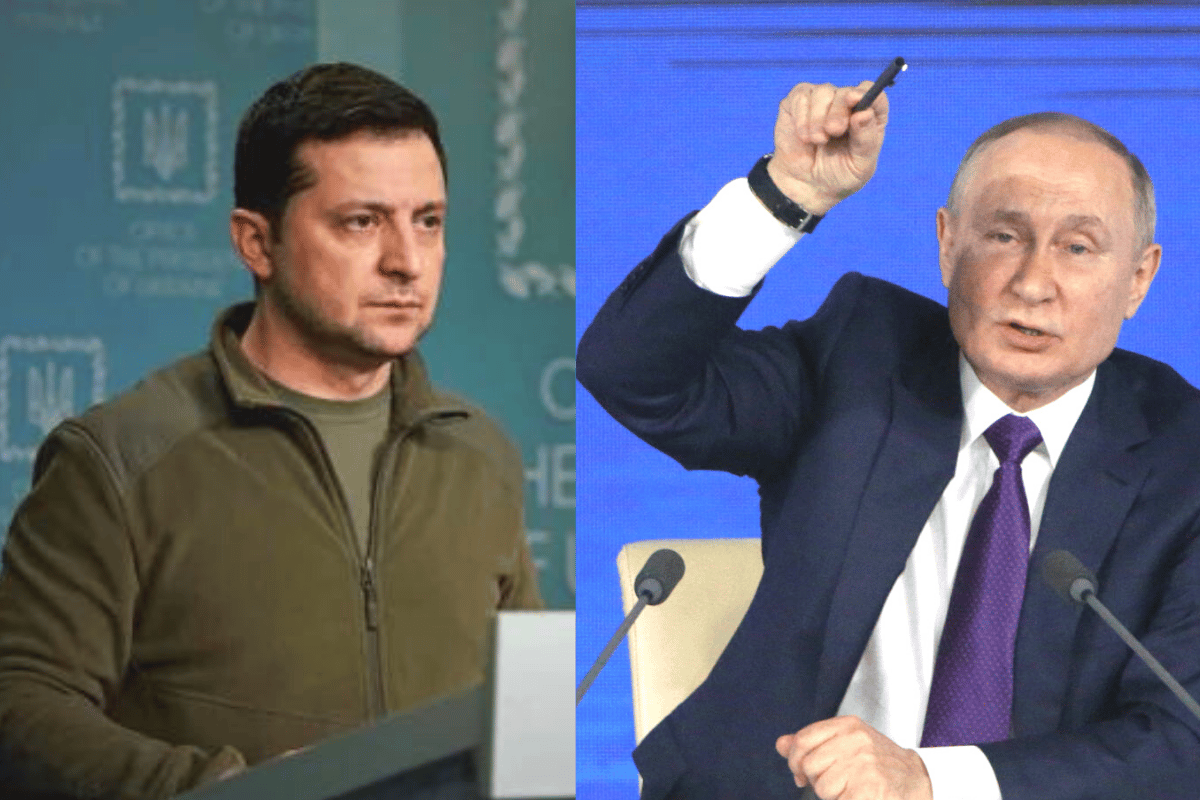
For the last two weeks, the world has been watching on in horror as Russia invades Ukraine.
There has already been so much bloodshed. So will this war continue for months to come, or are there pathways ahead for a de-escalation of tensions?
When words like 'nuclear' keep being thrown into the mix, the potentially more widespread ramifications of this conflict start to feel really overwhelming.
Watch: Airstrikes in Ukraine. Post continues below.
At the centre of this war is a man acting largely unchecked. And President Putin has already shown he is not afraid of impulsivity.
With so much propaganda being mixed in with real reports from the conflict zones, it can be hard to decipher which side has the upper hand.
So how and when does this end?
Mamamia’s news podcast The Quicky asked John Blaxland, a professor of international security and intelligence studies at the Australian National University’s Strategic and Defence Studies Centre in Canberra, to run us through the possible outcomes.

Top Comments
Some of them will have to be brave enough (together with extreme protests from thousands of Russians ) to actually physically remove him to be arrested & charged.
The world can see that he's at least guilty of serious war crimes.